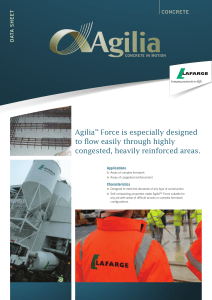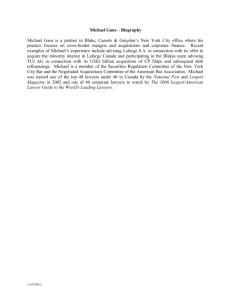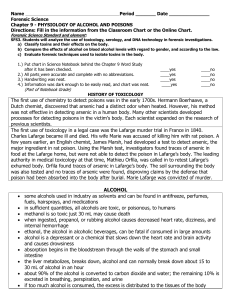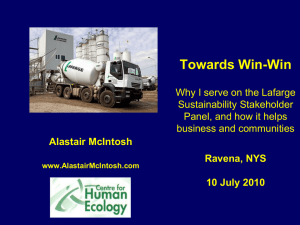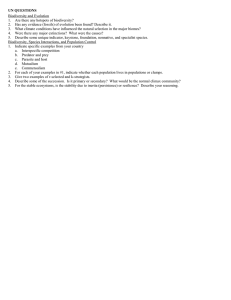Job R-O-C-K-S
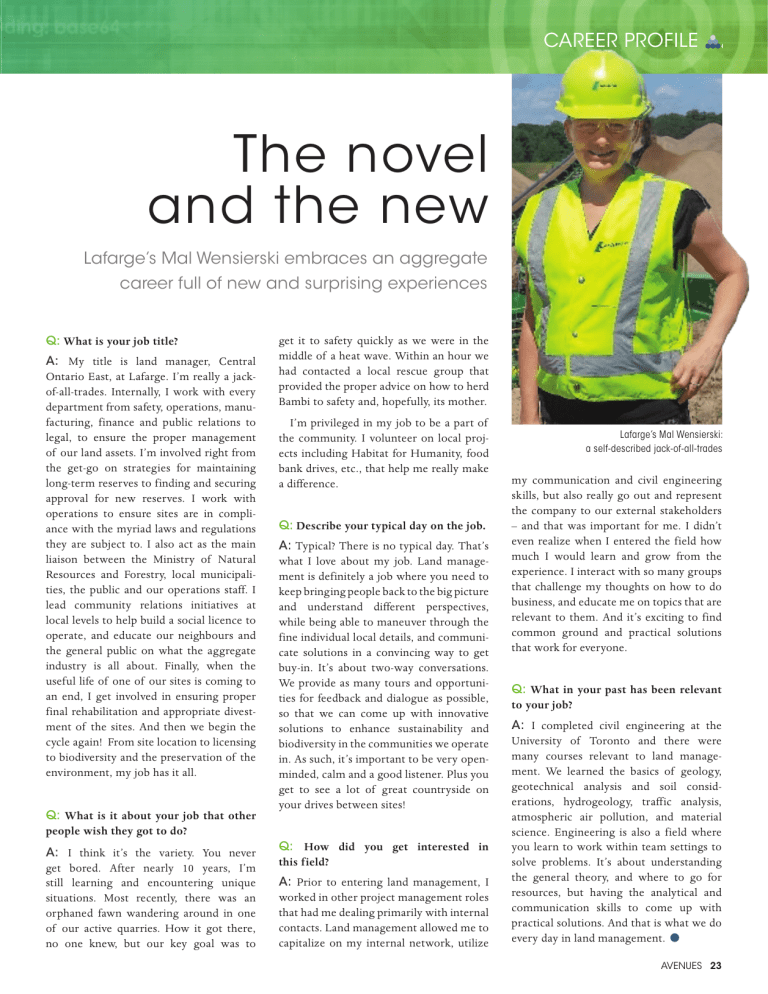
CAREER PROFILE
The novel and the new
Lafarge’s Mal Wensierski embraces an aggregate career full of new and surprising experiences
Q: What is your job title?
A: My title is land manager, Central
Ontario East, at Lafarge. I’m really a jackof-all-trades. Internally, I work with every department from safety, operations, manufacturing, finance and public relations to legal, to ensure the proper management of our land assets. I’m involved right from the get-go on strategies for maintaining long-term reserves to finding and securing approval for new reserves. I work with operations to ensure sites are in compliance with the myriad laws and regulations they are subject to. I also act as the main liaison between the Ministry of Natural
Resources and Forestry, local municipalities, the public and our operations staff. I lead community relations initiatives at local levels to help build a social licence to operate, and educate our neighbours and the general public on what the aggregate industry is all about. Finally, when the useful life of one of our sites is coming to an end, I get involved in ensuring proper final rehabilitation and appropriate divestment of the sites. And then we begin the cycle again! From site location to licensing to biodiversity and the preservation of the environment, my job has it all.
Q: What is it about your job that other people wish they got to do?
A: I think it’s the variety. You never get bored. After nearly 10 years, I’m still learning and encountering unique situations. Most recently, there was an orphaned fawn wandering around in one of our active quarries. How it got there, no one knew, but our key goal was to get it to safety quickly as we were in the middle of a heat wave. Within an hour we had contacted a local rescue group that provided the proper advice on how to herd
Bambi to safety and, hopefully, its mother.
I’m privileged in my job to be a part of the community. I volunteer on local projects including Habitat for Humanity, food bank drives, etc., that help me really make a difference.
Lafarge’s Mal Wensierski: a self-described jack-of-all-trades
Q: Describe your typical day on the job.
A: Typical? There is no typical day. That’s what I love about my job. Land management is definitely a job where you need to keep bringing people back to the big picture and understand different perspectives, while being able to maneuver through the fine individual local details, and communicate solutions in a convincing way to get buy-in. It’s about two-way conversations.
We provide as many tours and opportunities for feedback and dialogue as possible, so that we can come up with innovative solutions to enhance sustainability and biodiversity in the communities we operate in. As such, it’s important to be very openminded, calm and a good listener. Plus you get to see a lot of great countryside on your drives between sites!
Q: How did you get interested in this field?
A: Prior to entering land management, I worked in other project management roles that had me dealing primarily with internal contacts. Land management allowed me to capitalize on my internal network, utilize my communication and civil engineering skills, but also really go out and represent the company to our external stakeholders
– and that was important for me. I didn’t even realize when I entered the field how much I would learn and grow from the experience. I interact with so many groups that challenge my thoughts on how to do business, and educate me on topics that are relevant to them. And it’s exciting to find common ground and practical solutions that work for everyone.
Q: What in your past has been relevant to your job?
A: I completed civil engineering at the
University of Toronto and there were many courses relevant to land management. We learned the basics of geology, geotechnical analysis and soil considerations, hydrogeology, traffic analysis, atmospheric air pollution, and material science. Engineering is also a field where you learn to work within team settings to solve problems. It’s about understanding the general theory, and where to go for resources, but having the analytical and communication skills to come up with every day in land management.
AVENUES 23
